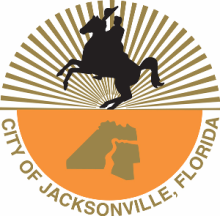Jacksonville Discovers Savings and Faster Connectivity
It is no secret to our readers that communities throughout the country have transitioned from leasing services from big corporations to building their own fiber networks to save public dollars. Some create collaborations between various entities to reduce costs. Jacksonville is the latest to dabble in collaboration and has found a way to save $200,000 on connectivity costs each year.
In a recent Government Technology article, Chad Vander Veen describes how the city found a way to eliminate leased lines and switch to a faster 1 gigabit connection via fiber (the article incorrectly says "gigabyte" in multiple places where it mights gigabit) . The City's Information Technology Division (ITD) began developing relationships and bringing various agencies together to explore its options. They held monthly meetings that included the mayor's office, public safety agencies, and libraries. Through these meetings they learned the city was eligible to participate in the Florida Lambda Rail program.
Lambda Rail is a nonprofit independent research and education network that connects universities, schools, libraries, and research facilities across the state. The network has an extensive network of fiber across the state. Because the City of Jacksonville is responsible for its libraries, it qualifies for service from Lambda Rail. Within 45 days, Lambda Rail served city facilities.
“This is a great opportunity for all the partner agencies to work together to provide superior service and save money at a time we need to make every dollar count,” said Mayor Brown in a statement. “With a growing number of websites and applications helping to expand the reach of city government, we owe it to taxpayers to invest wisely in the most effective and efficient systems to keep everyone connected.”
Saving public dollars by elimintating leased lines and collaborating is certainly a positive outcome. Unfortunately, this solution may limit the community in the longer term. Working with entities that only serve nonprofit or specific entities means that others who need connections in the communities - including both residents and local businesses - will not directly benefit from this investment.



